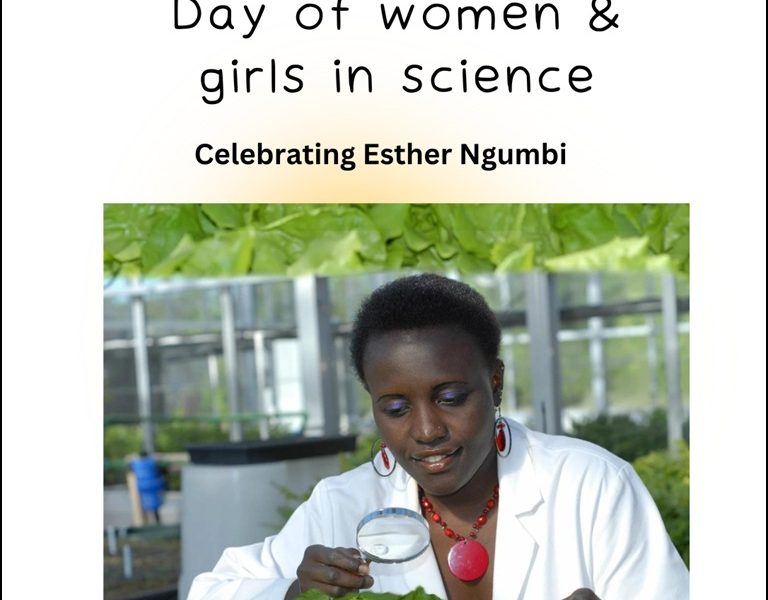Did you know that globally:
– Only 33 percent of researchers are women?
– That they are awarded less research funding than men?
– And are less likely to be promoted?
Even though women have made tremendous progress towards increasing their participation in higher education, they are still under-represented in the field of science. Societies cannot afford to lose the contributions of millions of girls and women towards innovation and technology. “Science is not a boy’s game, it’s not a girls game, its everyone’s game.” Nichelle Nicholas (former NASA ambassador and Star Trek actress)
The international day of girls in science is celebrated on the 11th of February every year to achieve full and equal access to and participation in science for women and girls, and celebrate those who are leading action and innovation around the world.
As we celebrate this day, there is a need to: First, encourage, equip, and mentor girls to take up science courses and careers; secondly, support women in science, to stay in science by working with academic institutions and employers, It is possible to provide professional support to women scientists through scholarships, mentoring programmes and gender-friendly policies so that women thrive. Lastly, invest more in women-led innovations and fund women’s research to raise the level of venture capital directed towards women-founded start-ups from the current 2% globally.
Here’s is a story of a Kenyan woman who against all odds has been successful in science:
Born and raised in Kenya Kwale county, Esther Ndumi Ngumbi is an entomologist and academic. Growing up, her family introduced her to farming at the age of seven, by giving her a piece of land to cultivate cabbages. She went to Kenyatta University and was later on awarded an American Association of University Women (AAUW) International Fellowship that allowed her to complete a doctoral degree in entomology at Auburn University. She became one of the first people from her community to achieve a doctorate.
Ngumbi was appointed Assistant Professor of Entomology and African-American studies at the University of Illinois at Urbana–Champaign in 2018, and teaches science communication. She studies the way that herbivores, plants, micro-organisms and insects make use of volatile and non-volatile chemical signals. These include volatile organic compounds (VOCs) that mediate conversations between plants, herbivores and microbes. Ngumbi believes that better urban agriculture can help to combat unhealthy eating.
She was awarded the 2017 Emerging Sustainability Leader Award and Women of Colour Award. In 2018 Ngumbi was awarded the Society for Experimental Biology’s President’s Medal. In 2019 she delivered the plenary lecture at the British Ecological Society annual meeting.
Ngumbi is an active science communicator and has contributed to Mail & Guardian, The Moth, Scientific American and the World Economic Forum. She has also appeared on Wisconsin Public Radio.
Ngumbi was selected by Barack Obama to be part of the Young African Leadership Initiative. She mentors young researchers through the Clinton Foundation, and has campaigned for girls from rural communities to have better access to education, particularly in science and technology. Working with her family, she has given back to her community by establishing the Dr Ndumi Faulu Academy, a school in her hometown that serves over 100 middle school students. In 2021 Ngumbi was awarded the Mani L. Bhaumik Award for Public Engagement with Science by the American Association for the Advancement of Science.
“We need to encourage girls and women to reach their full potentials as scientific researchers and innovators.” – UN Secretary General Antonio Guterres
#transolutionservices #womenandgirlsinscience #transolutiontrainings

